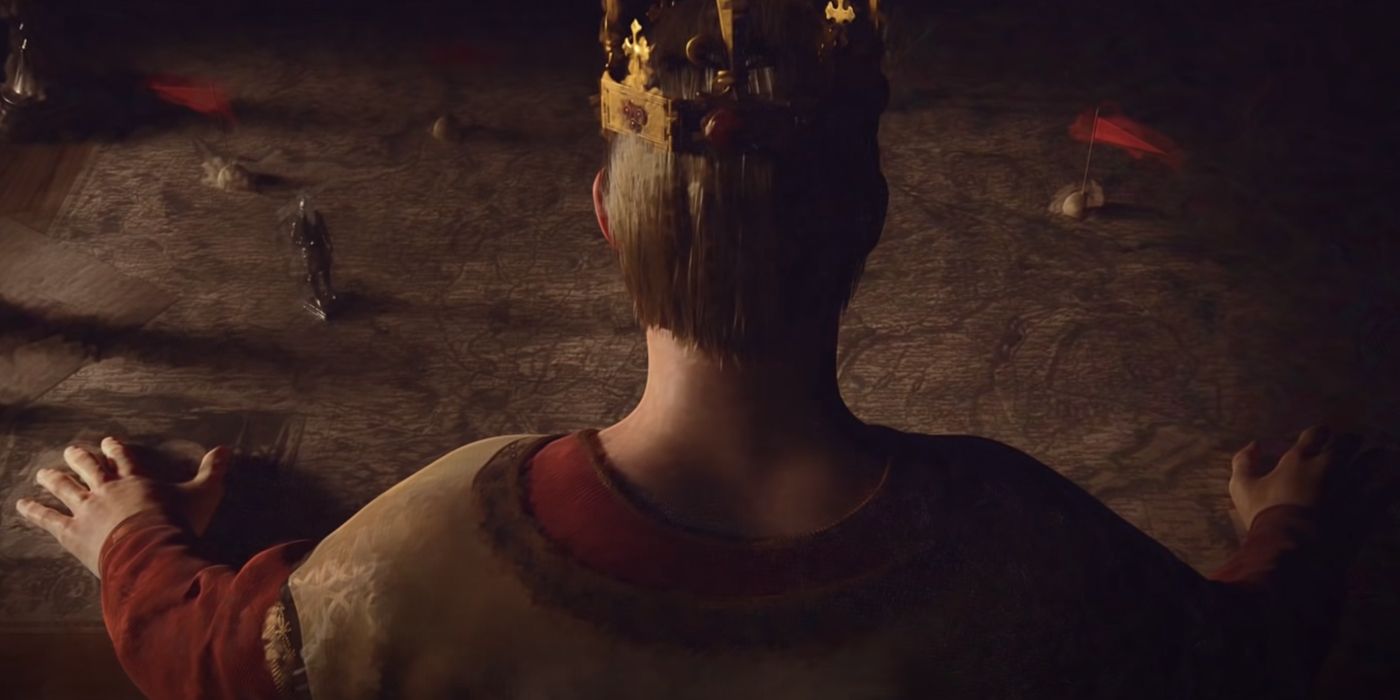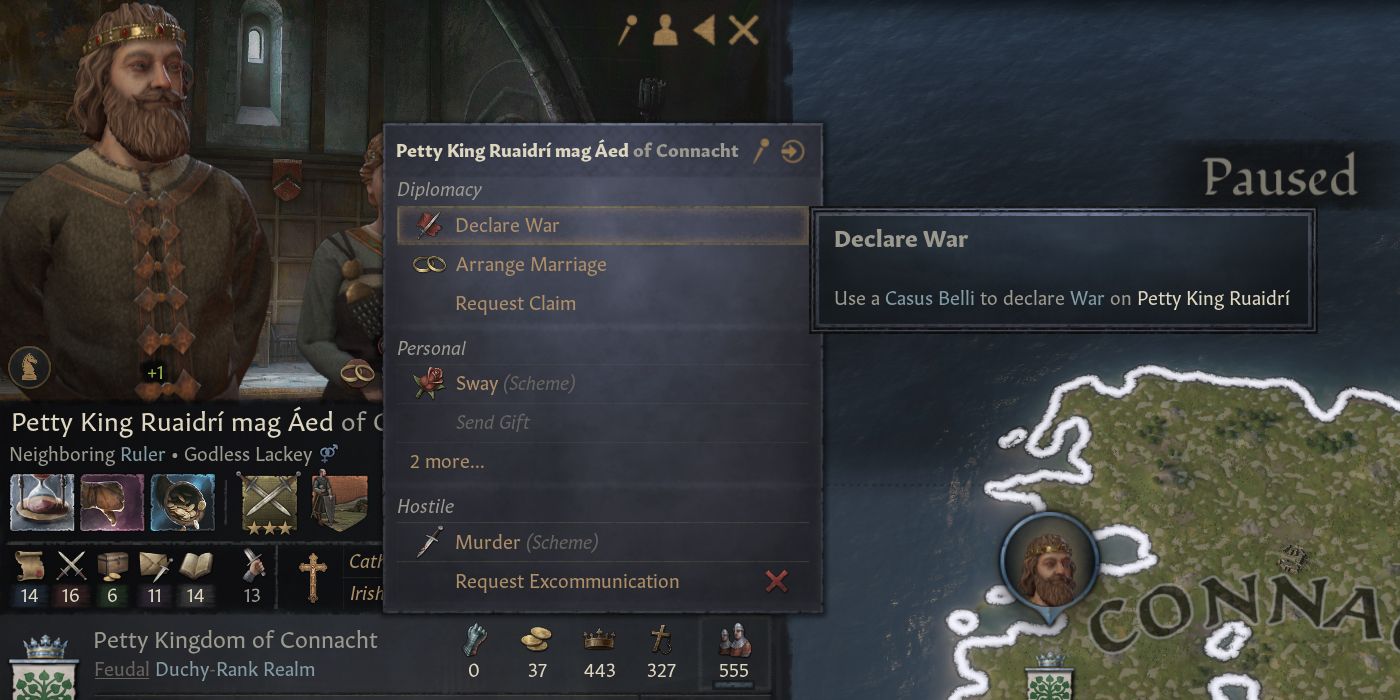Crusader Kings 3 is out now, packing numerous improvements over the prior game in terms of ease of navigation and moving around menus. Of course, while playing, players are likely going to run into conflict, especially those looking to expand their kingdoms into new territory. That makes declaring war an important part of the game, but much like other elements in the Crusader Kings franchise, there's more to it than some people realize.
The act of declaring war, in itself, is fairly straight forward. To do so, players simply need to find the opposing leader they wish to declare war on – typically by navigating to one of their cities – right-click them, and hit "declare war." Doing so will kick off a conflict with the now-enemy faction, but there are a few extra things players will need to keep in mind before they should start a conflict.
Casus Belli
First, players will need a reason to go to war, or "Casus Belli" as the game puts it. There are a number of reasons that players can pick from, but they need a valid one before they can start a conflict. Most commonly, this will be something like a dispute over a title or claim to land. Periodically, Crusader Kings 3 will alert players that they have a Casus Belli, allowing them to declare war over the dispute if that's how they want to proceed.
Casus Belli chosen, there are a few things that players will want to keep in mind before hitting the final war declaration button, as the quality of troops and military strength can be a little bit misleading. Crusader Kings 3 will show players the disparity between the player's army and the person they're attacking, but it's also important to factor in allies, who will need to be called to war if players want a chance at victory.
Fighting a War
Now that a war has been declared, players will need to fight it. War isn't as involved as Total War, but there's still plenty of nuances. In smaller conflicts, this is relatively simple. The opening tutorial for Crusader Kings gives an overview of how to raise troops, move troops, and siege a castle, which are the fundamentals of walking away victorious. It's very worth playing through the entire tutorial to learn the ropes of the game, from basic fundamentals to things like fighting a war.
Bigger wars can quickly become more complicated. There will be numerous armies walking around and generally more going on. In either case, it's highly recommended that players slow down the game speed during wartime to keep track of what's going on, otherwise it can be easy to miss important events.
Ending a War
All wars eventually come to an end, where players will have either won or lost, depending on the outcome. Those that manage to walk away victorious will be able to press their claim for whatever it is they wanted, achieving their goal. Alternatively, players can negotiate a White Peace with the enemy, or choose to surrender if the war didn't go in their favor. Either way, the landscape will likely be radically different than before the war. There are also cheats and console commands in Crusader Kings 3 for those looking to win easily.
Crusader Kings 3 is available now for PC.


